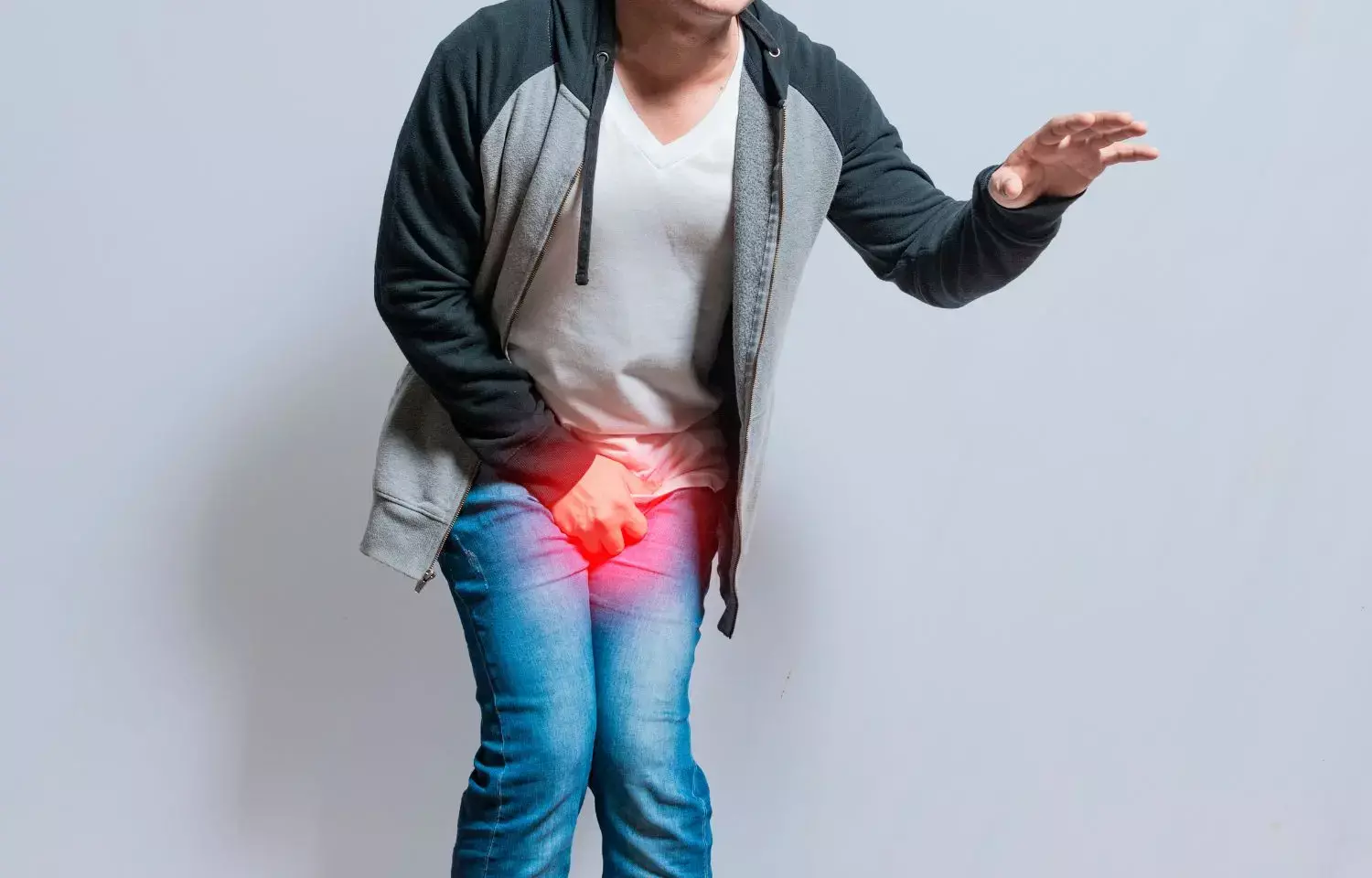- Home
- Medical news & Guidelines
- Anesthesiology
- Cardiology and CTVS
- Critical Care
- Dentistry
- Dermatology
- Diabetes and Endocrinology
- ENT
- Gastroenterology
- Medicine
- Nephrology
- Neurology
- Obstretics-Gynaecology
- Oncology
- Ophthalmology
- Orthopaedics
- Pediatrics-Neonatology
- Psychiatry
- Pulmonology
- Radiology
- Surgery
- Urology
- Laboratory Medicine
- Diet
- Nursing
- Paramedical
- Physiotherapy
- Health news
- Fact Check
- Bone Health Fact Check
- Brain Health Fact Check
- Cancer Related Fact Check
- Child Care Fact Check
- Dental and oral health fact check
- Diabetes and metabolic health fact check
- Diet and Nutrition Fact Check
- Eye and ENT Care Fact Check
- Fitness fact check
- Gut health fact check
- Heart health fact check
- Kidney health fact check
- Medical education fact check
- Men's health fact check
- Respiratory fact check
- Skin and hair care fact check
- Vaccine and Immunization fact check
- Women's health fact check
- AYUSH
- State News
- Andaman and Nicobar Islands
- Andhra Pradesh
- Arunachal Pradesh
- Assam
- Bihar
- Chandigarh
- Chattisgarh
- Dadra and Nagar Haveli
- Daman and Diu
- Delhi
- Goa
- Gujarat
- Haryana
- Himachal Pradesh
- Jammu & Kashmir
- Jharkhand
- Karnataka
- Kerala
- Ladakh
- Lakshadweep
- Madhya Pradesh
- Maharashtra
- Manipur
- Meghalaya
- Mizoram
- Nagaland
- Odisha
- Puducherry
- Punjab
- Rajasthan
- Sikkim
- Tamil Nadu
- Telangana
- Tripura
- Uttar Pradesh
- Uttrakhand
- West Bengal
- Medical Education
- Industry
Higher oxidative balance score lowers urinary incontinence prevalence

A recent study published in the International Urology and Nephrology has shed light on the relationship between oxidative stress and urinary incontinence (UI) in adult females. The study, using data from the National Health and Nutrition Examination Survey database, aimed to assess the association between the oxidative balance score (OBS) and UI.
Urinary incontinence, a condition characterized by the involuntary leakage of urine, can significantly impact the quality of life for affected individuals. The study focused on oxidative stress, a state in which there is an imbalance between the production of reactive oxygen species and the body's antioxidant defense mechanisms. Oxidative stress has been implicated in various disease processes, including UI.
The study included 7,304 participants and utilized weighted multivariate logistic regression, subgroup analyses, and restricted cubic spline regression to analyze the association between OBS and UI. After adjusting for potential confounders, the results revealed a significant association between lower OBS and a higher likelihood of experiencing stress, urge, and mixed incontinence. Participants with lower OBS had decreased odds of experiencing UI.
Furthermore, lifestyle factors were found to strongly influence the prevalence and frequency of UI. The study highlighted the importance of dietary and lifestyle-related antioxidant therapy for females with UI. The findings suggest that interventions targeting oxidative stress through dietary modifications and lifestyle changes may have potential benefits in managing UI in women.
The results remained consistent across subgroup analyses, indicating that the association between OBS and UI was robust and not influenced by specific demographic or health-related factors. Interestingly, the prevalence of UI showed a nonlinear inverted U-shaped trend with increasing OBS and dietary OBS, suggesting that an optimal balance of oxidative stress is necessary for maintaining urinary continence.
Source:
Yuan, Y., Tan, W., Huang, Y., Huang, H., Li, Y., Gou, Y., Zeng, S., & Hu, Z. (2023). Association between oxidative balance score and urinary incontinence in females: results from the national health and nutrition examination survey in 2005–2018. In International Urology and Nephrology. Springer Science and Business Media LLC. https://doi.org/10.1007/s11255-023-03665-3
Neuroscience Masters graduate
Jacinthlyn Sylvia, a Neuroscience Master's graduate from Chennai has worked extensively in deciphering the neurobiology of cognition and motor control in aging. She also has spread-out exposure to Neurosurgery from her Bachelor’s. She is currently involved in active Neuro-Oncology research. She is an upcoming neuroscientist with a fiery passion for writing. Her news cover at Medical Dialogues feature recent discoveries and updates from the healthcare and biomedical research fields. She can be reached at editorial@medicaldialogues.in
Dr Kamal Kant Kohli-MBBS, DTCD- a chest specialist with more than 30 years of practice and a flair for writing clinical articles, Dr Kamal Kant Kohli joined Medical Dialogues as a Chief Editor of Medical News. Besides writing articles, as an editor, he proofreads and verifies all the medical content published on Medical Dialogues including those coming from journals, studies,medical conferences,guidelines etc. Email: drkohli@medicaldialogues.in. Contact no. 011-43720751


